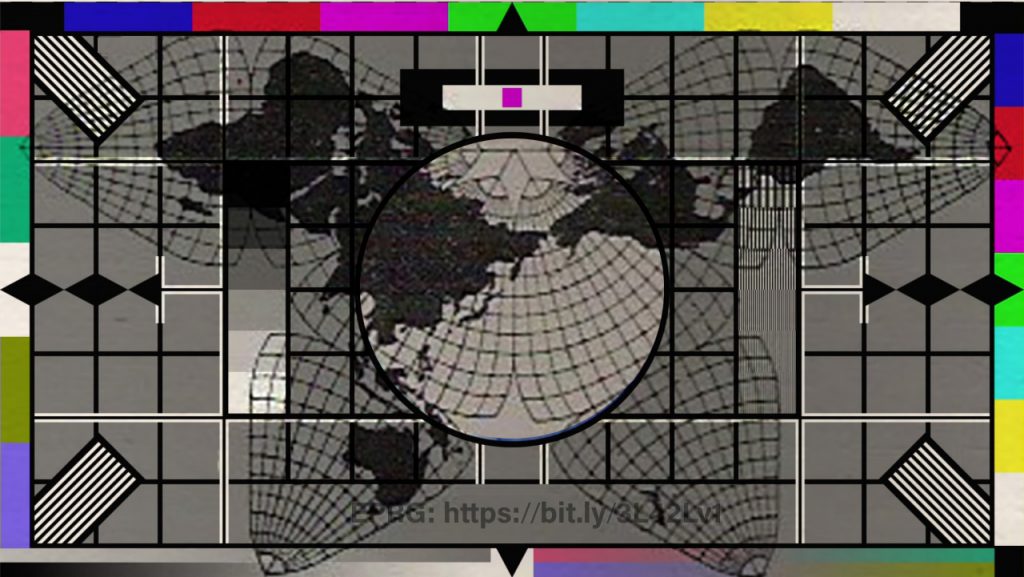
Recordings of 24hrs ON EARTH
https://eprg.arts.ac.uk/24hrs-on-earth/
‘Learning to learn about racial, social and environmental (in)justice’
This was for UAL’s Research Season 2022 Earth and Equity: integrating environmental and racial justice https://bit.ly/3ukGBxX
13.00 BST 29.03.2022
(k)not crochet
Hosted by Lynda Beckett + Ana Vicente Richards
(k)not crochet was an interactive session on MSTeams where the conversation emerged while we attempted to make an improvised knotted piece. (k)not crochet was initiated and facilitated by Lynda Beckett and Ana Vicente Richards, both members of the Experimental Pedagogies Research Group and PhD candidates at UAL, whose mutual interest in crocheting generated a conversation between them. Crocheting or crochet involves interlacing loops of yarn formed either on a knitting needle or on a crochet hook, to form a shape. The session created a space for making an improvised knotted piece loosely based on crochet as a way to think together while making. We and the attendees sourced materials in advance. After a short demonstration of how to make a slipknot, we encouraged ourselves to be guided by the curiosity of our hands and minds, feeling our way through the materials and conversation to find our individual path of knots and loops. There was no expectation for completing an outcome or arriving at a conclusion at the end of the session. Silences were welcomed and necessary while we concentrated and tried to find a flow and follow a rhythm; starting and restarting, mumbling, listening, observing, sharing, getting frustrated, asking questions, making, conversing….Through a process of knot-knowing the session made us feel learning in the making, in parallel with Ingold (2013), as we spoke of between what we think we know, how we think we know it and how we feel it is known.
“Bring some thread, old clothes, towels, fabric, used plastic bags and/or any other flexible material you have available…. and a hook or a stick or a wooden spoon (and you can also just use your hands)….to make an improvised crochet piece while we hook up together to discuss any EARTH issues on our minds. No previous experience or knowledge of crochet is necessary as we will be making up our own crochet techniques as we converse.”
+
14.00 BST 29.03.2022
The Conversation – Fermenting Feminisms for Mother-ness Earth
A group of Research students from UAL and beyond, who meet sporadically to discuss our experiences of being engaged in research and the Earth.
The Conversation is in progress and we would be pleased if you could come and engage with it for a while, vocally, silently or textually. We will be using Lauren Fournier’s paper on ‘Fermenting Feminism’ https://bit.ly/3J1X5QV a pivot piece, though discussion tends to bubble and fizz along various lines of enquiry… Global
Recording of the Conversation:
https://bit.ly/3IZUirl
+
15.00 BST 29.03.2022
Art Class – As part of 24hrs ON EARTH extravaganza I showed Art Class (2020, 49mins)
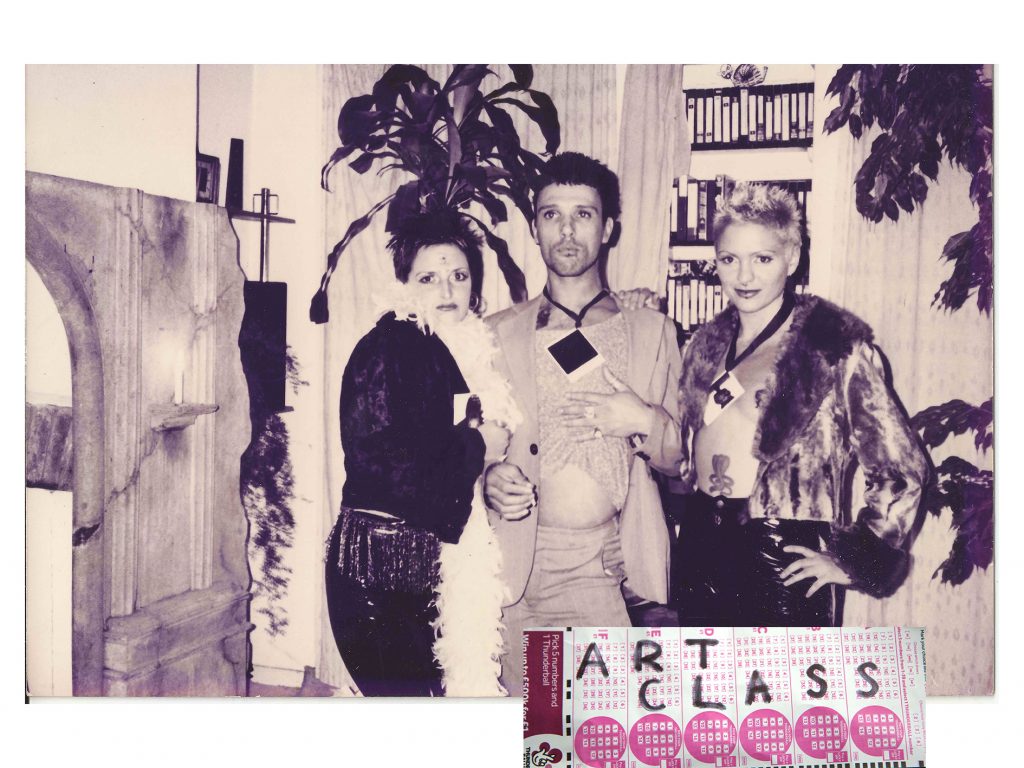
Art Class is a filmed performance lecture by Andrea Luka Zimmerman playing on, and exploring, the perennial tension between the two key words in its title. It uses the tropes of scholarly presentation and personal confession alongside extracts from the artist’s work, guest interventions, martial arts and meditation exercises and evidentiary found material.
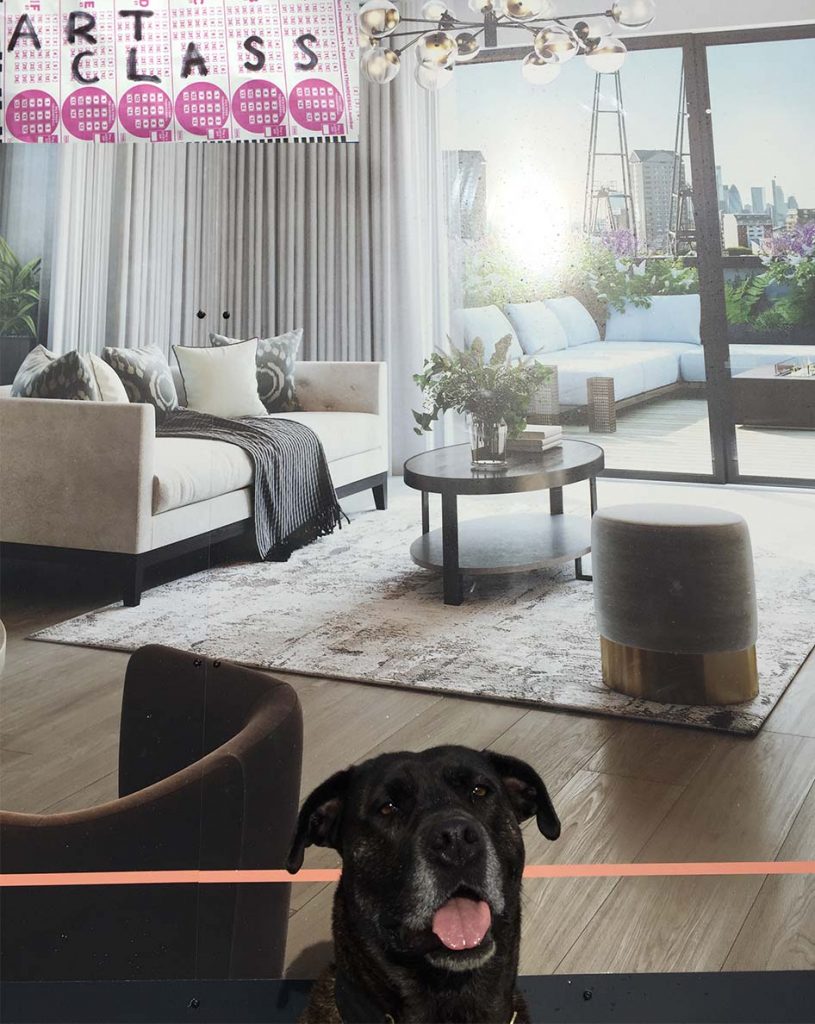
The sequence tests the limits of access that working-class artists have to cultural production and to the relevant institutions circulating these outcomes. Alternately playful and provocative, serious and satirical, Art Class favours wit over weaponizing and reflection over rhetoric but does not pull its punches when it comes to the real obstructions to working class creative progress, or to the strategies necessary to overcome such outmoded hindrances.
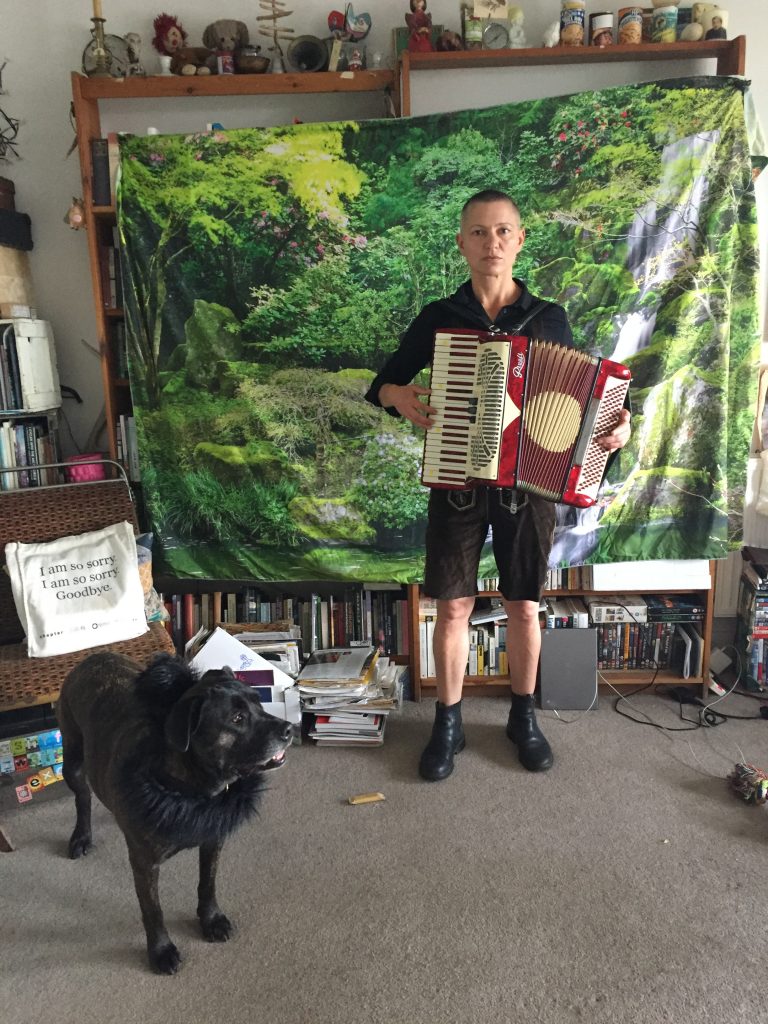
+
16.00 BST 29.03.2022
SEEING | IS BELIEVING
Claudette Davis-Bonnick + Louise Rouse + Crona Connolly + Laura Salisbury
Contour designer student with vision impairment demonstrating how to draft a bikini. Subsequent iterations (including screen printing), followed by a conversation on the sensory issues encountered during our practices of teaching and the effects it might have on the curriculum. UK Japan Ireland London
Link to Video SEEING | IS BELIEVING https://bit.ly/3Lo8SL8
This opportunity highlighted inclusive learning in Arts education and encouraged building multi-sensory curricula. In this ocular dominated culture, there are barriers for students with a vision impairment. The three featured disciplines were fashion, printing, and life-drawing as perceived by practitioners and vision impaired students.
The fashion discipline depicted three students with vision impairment drafting a bikini, draping a skirt, draping a kimono dress and talking about their experiences. Later they were seen in a real fashion studio being taught to use CAD to produce and grade their patterns. Whilst the student and participants have severe difficulty in seeing, they do not experience total blackness.
During the printing exercise the ‘talking through your thoughts’ methodology gave the practitioner space to consider her embodiment of the task, re-experience knowledge she had taken for granted or had gone unnoticed and begin to analyse how to compartmentalise the applied tasks to teach it to someone with a vision impairment.
The life-drawing practitioner stated, “if you design inclusively, everyone benefits”. Her workshop with sighted/blindfolded students highlighted the importance of organisational skills, attention to details and ordering of information and the disruptive inferences when that failed to happen, as illustrated in the sensory integration/processing table. Figure 1 (Pathways.org).
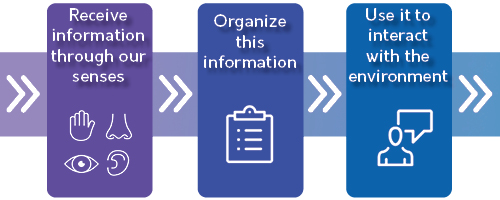
Two of the points discussed by the practitioners, were the effects of repetitive sessions, “would students need a different tool or is there an intuitive nature that kicks in? and giving agency to student’s leadership skills and confidence and when and where learning takes place.
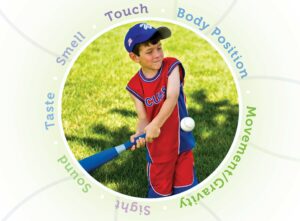
Reference
https://pathways.org/topics-of-development/sensory/
+
17.00 BST 29.03.2022
Pedagogies of Chronopolitics.
John O’Reilly + Lonny Avi Brooks
In some future you and we are imagining, Lonny Avi Brooks, Professor of Strategic Communication at California State University, East Bay, discusses the creative, ethical and social pedagogy of his futures work in papers such as ‘Diverse Alternative Learning Visions 2026–2066: Transforming and Reframing the University as a Lifelong Social Design Lab” (2019, with Ian Pollock). We will imagine with Lonny, different futures beyond the cruelty of ‘the white imagination’, imagining Superpedagogies of Superstruction and Superposition. See you in The Then. UK US
Recording of the Pedagogies of Chronopolitics session
https://bit.ly/376aCtg
+
18.00 BST 29.03.2022
Going Wonderground
Jenny Maxwell – An hour of wonder on the Underground
+
21.00 BST 29.03.2022
‘The semiotics of micro-botanical gardening.’
Jheni Arboine + Barbara Beckles is the Secretary of the South London Seed Society. [A new informal community group]
“This session is interactive. Please bring the following; Spring onions, lemons/limes, tomatoes, carrots, moss, pak choi/celery,
recycled plastic containers, /glass jars,
kitchen paper towels and newspapers.
Water, memories and critical conversations that signify cultivating and growing hope.
22.00 BST 29.03.2022
Awakenings:
Stacey Leigh Ross + Noemi Sadowska + Kevon Foderingham + Crystal Zhang
How we learn to care and if learning and teaching can save the world and to borrow from Layla Saad’s (2020) work The Post-Racist Planet what will make us ‘good ancestors’?
In response, they will reflect on their learning concerning eco-social justice and share their latest insights and approaches to educating for social and environmental sustainability from three different time zones. They will bring the session to a close, by imagining and reflecting on what the future for higher education could look like.
Trinidad & Tobago China UK
+
23.00 BST 29.03.2022
Musicodiscussionismo…
Elena Arzani + Marco De Biasi + Gabriele Marangoni + Daniela Slezàkovà
Starting with a Musicodissusionismo Talk on the relevance of Music as a universal language capable of overcoming cross-cultural boundaries and uniting people empathically with love.
Then a reflection on the vocabulary of music, we expand on the meaning of empathy as applied in the music production and disciple and the opportunity of embracing the value of music culture in Academic InstitutionsGlobal
YouTube Link:
https://bit.ly/3qKb3At
+
04.00 BST 30.02.2022
A curated discussion across vast timezones…
Jonathan Kearney + Collaborators from many locations
From 24hrs ON EARTH 04.00-05.00 UK time – 2022.03.30 by the EPRG
A curated discussion across vast timezones exploring experimental differences in pedagogy and environmental impact of online tools. A conversation between 6 artist teachers across many different time zones – in California, USA; rural south Peru; Liverpool, UK; Jeddah, Saudi Arabia; Ho Chi Minh City, Vietnam; Beijing, China.
+
06.00 BST 30.03.2022
Scores for Earthly Listening
Mark Peter Wright + Student Voices
x 12 invitations for listening-with humans and environments. Hosted by Jonathan Martin.
+
08.00 BST 30.03.2022
Mossy Entanglements: Mel Davies + Lucy Dukes
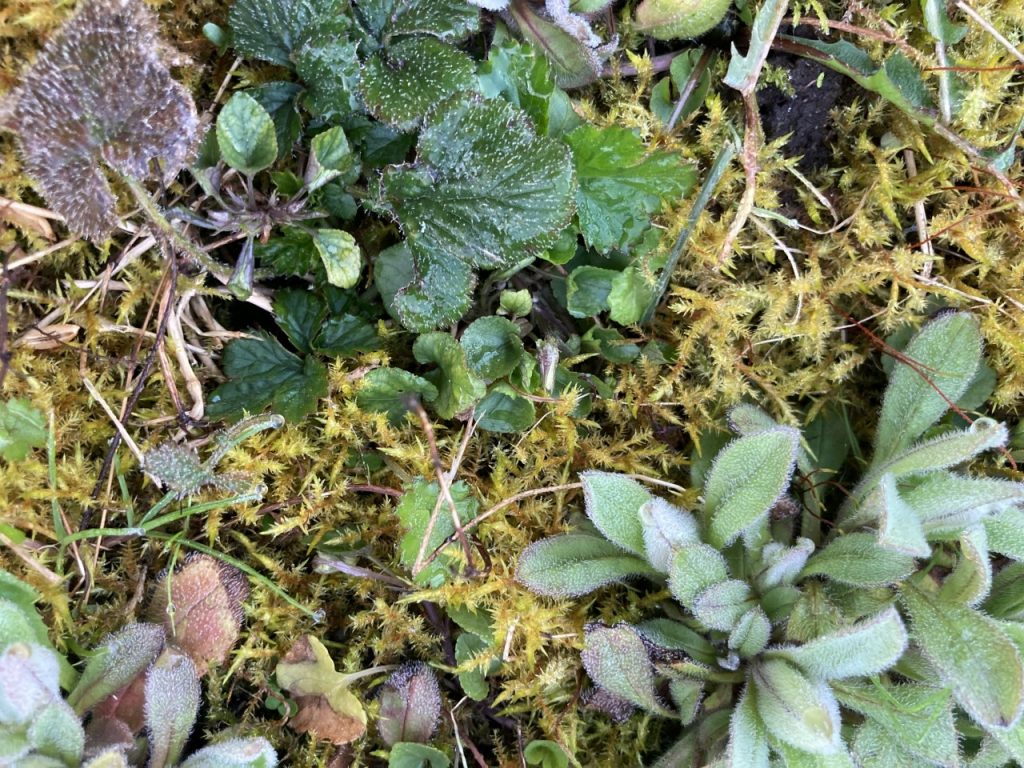
This session is intended to be an unstructured discussion that responds to ideas introduced in MA Art and Science (CSM). The session aims to explore how artists, thinkers, and activists have used the rhizoid qualities of moss as a ‘thinking tool’ in the consideration of Earth and equity
Mossy Entanglements
Mossy entanglements explored how artists, thinkers, and activists have used the rhizoid qualities of moss as a ‘thinking tool’ in the consideration of Earth and equity. Early in the morning, we gathered, to share our ideas and experience. Over 400 million years old, moss has survived many apocalypses. We wondered: how might moss help us reimagine our relationships to the world around us? Maybe the ‘realisation of our inextricable interconnection with both human and non-human others …[is] the epistemological and ethical bonus we gain from … [this] crisis’ (Braidotti 2017).
One of us was preparing for the school run, another was under the weather joining from their bed. The structure of our hour, and its interconnectedness with the other hours in the 24, felt like the rhizomatic structure of moss: we encouraged interruptions, tangents and sharing. Colonisation left hierarchical borders between nation-states, humans, and more-than-human, agency, and inertness, but moss’s rhizoid structure challenges these separations. Following decolonial knowledge-making from Robin Wall Kimmerer (2021), we engaged our senses around this microcosmic ecosystem as diverse as the Amazon Rainforest.
Mosses are relational, they thrive through their interstices with each other, holding water against the pull of the sun. Moss exists on the boundary of things and challenges us to rethink ideas about self and other. What kind of interconnected selves might be imagined in these moments of becoming? How might we work with the resources of earth and past thoughts to find spaces of shared solace and connectedness?
References
Braidotti, R. (2017) ‘Posthuman, all too human the memoirs and aspirations of a posthumanist’ The 2017 Tanner Lectures. Delivered at Yale University March 1-2
Kimmerer, R, W. (2021) Gathering Moss: A Natural and Cultural History of Mosses. Dublin: Penguin Random House
+
09.00 BST 30.03.2022
Pre-recording of a class trip to An Grianàn, an Aileach…
Cròna Connolly
Recording of the session: https://bit.ly/3uPwEsH
+
10.00 BST 30.03.2022
Talk & Draw
Stacey Leigh Ross + James Hackett
of The Lush Kingdom and University of Trinidad & Tobago
Drawing the feelings that come up as we discuss our experiences learning about racial, social and environmental justice. We’ll be using a shared board where viewers can see the artwork unfold. UK Trinidad & Tobago
Recording of the Talk & Draw session: https://bit.ly/3K0O6AR